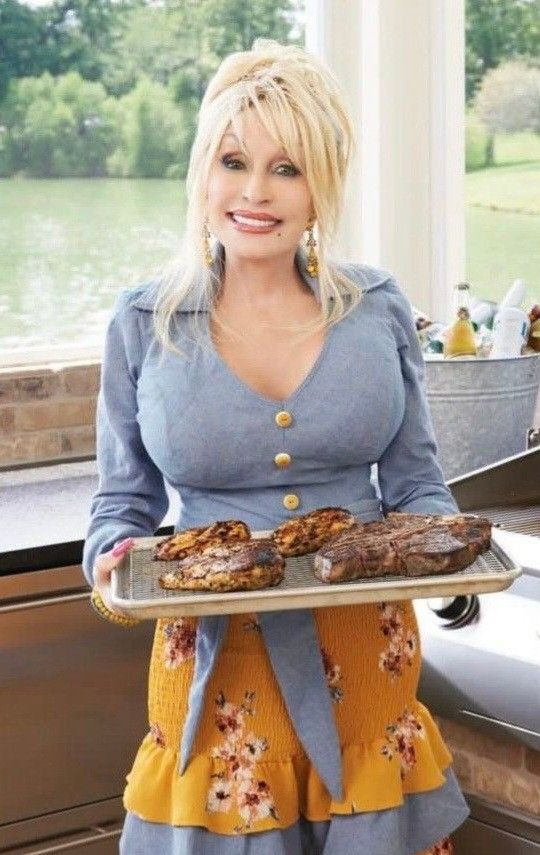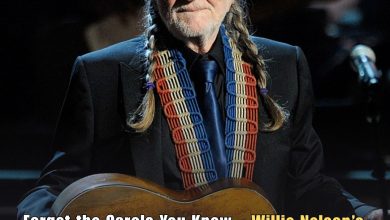The Songs That Taught the World to Listen: How Dolly Parton Turned Country Music Into a Voice for Equality. ML

What if a three-minute song could change the way you see the world — and yourself? That’s exactly what Dolly Parton’s 1968 classic “Just Because I’m a Woman” did. It wasn’t loud. It wasn’t angry. It didn’t come wrapped in protest slogans or political slogans. It came wrapped in honesty — and in that honesty, Dolly Parton forever shifted the way country music talked about women, men, and the space between them.

When the song was released, the world wasn’t ready for it. The lyrics were simple, almost conversational:
“My mistakes are no worse than yours,
Just because I’m a woman.”
In a time when even whispering about female independence could cause scandal, Dolly didn’t whisper — she sang. Softly, clearly, fearlessly. And the result was a revelation.
A Voice Too Honest to Ignore
It’s hard to imagine today just how radical “Just Because I’m a Woman” was in 1968. The country music world was ruled by men — not just on the charts, but in the stories the songs told. Women were wives, mothers, or heartbreakers; they weren’t complex, flawed humans allowed to stumble and rise again.
Dolly changed that.
The inspiration for the song came after her husband, Carl Dean, reacted coldly when she confessed she hadn’t been a virgin when they met. Instead of anger or shame, she turned to the only weapon she’s ever needed: her pen. The result was an unflinching statement of truth — one that flipped centuries of judgment upside down.
“I wasn’t trying to start a movement,” she later said. “I was just telling my story. But I guess a lot of women felt the same way.”
And they did. The song became a quiet anthem — not for rebellion, but for recognition. For the first time, women across America heard their own experience in the heart of country music. And just as importantly, men heard a truth they’d ignored for too long.
Beyond the Lace and Laughter
To outsiders, Dolly Parton might have seemed like an unlikely feminist icon. The big hair, the glitter, the endless self-deprecating jokes about her looks — she was easy to underestimate. But beneath the rhinestones, she was rewriting the rules of power.
Her songs didn’t lecture; they invited reflection. They didn’t accuse; they illuminated.

Take “9 to 5” (1980) — the rollicking anthem that gave working women a soundtrack for survival. Written for the film of the same name, it captured the exhaustion, frustration, and humor of millions of women fighting for respect in workplaces built for men.
“It’s enough to drive you crazy if you let it,” she sang,
“Nine to five, for service and devotion.”
But the magic of “9 to 5” wasn’t just in its feminist fire. It was in its universality. It was a song for anyone who’s ever felt unseen, unheard, or undervalued — a song that reminded every worker, man or woman, that dignity is not negotiable.
When Dolly sat down to write it, she didn’t plan a manifesto. She simply looked around at her co-stars — Jane Fonda and Lily Tomlin — and saw how their humor and determination mirrored her own experience.
“I wanted it to be fun,” she said, “but also true. Because truth has a beat, too.”
Lessons in Living
Two decades later, with “Better Get to Livin’” (2007), Dolly returned to that same theme — not with defiance, but with wisdom. The song isn’t just advice; it’s a sermon wrapped in melody.
“You better get to livin’, givin’,
Don’t forget to throw in forgivin’.”
It’s not a lecture about gender or power. It’s about humanity — about resilience, kindness, and the courage to keep showing up, even when the world misunderstands you.
That’s what has always made Dolly’s songwriting different. She doesn’t write to divide; she writes to connect. Whether she’s singing to a woman trying to reclaim her worth or a man trying to understand what empathy looks like, her message is the same: We’re all human. Let’s act like it.
A Wake-Up Call — and a Hand Extended
For men, Dolly’s songs offer something rare — an invitation to listen without defensiveness. In “Just Because I’m a Woman,” she doesn’t attack; she holds up a mirror. In “9 to 5,” she doesn’t accuse; she exposes imbalance with humor and melody. And in “Better Get to Livin’,” she reminds everyone that strength without compassion is hollow.
That’s why her music resonates beyond gender. Because Dolly Parton doesn’t write for women. She writes for people.
Her songs ask men not to feel guilty — but to grow. To understand the quiet pressures women face. To see equality not as a loss of power, but as a gain in humanity.
“Men need to hear these songs just as much as women do,” says Nashville producer Randy Lewis. “They teach empathy. They teach humility. They remind you that love without respect isn’t love at all.”
The Secret of Her Power
Dolly’s genius has always been her duality — her ability to be both glitter and grit, humor and heartbreak, sweetness and steel. She once said, “I’m not offended by dumb blonde jokes because I know I’m not dumb. I also know I’m not blonde.”
That self-awareness is her power. It’s what allows her to challenge the world without alienating it. Her laughter disarms, but her lyrics linger.

In the 1960s and 70s, when women in country music were expected to sing about men rather than to them, Dolly quietly flipped the script. She made herself the narrator of her own story — not the victim, not the sidekick, but the voice.
And that voice has never wavered.
From Protest to Poetry
Even now, more than five decades after “Just Because I’m a Woman” first hit the airwaves, its message feels painfully current. We still live in a world where double standards echo, where women’s choices are policed more harshly than men’s. But Dolly’s voice — steady, compassionate, and unwavering — reminds us that real change doesn’t start with shouting. It starts with understanding.
She never claimed to be a political figure. She once said, “I’m not out to change the world — just to sing about the way it feels.” Yet, in doing just that, she did change the world.
Every woman who’s demanded equal pay, every man who’s learned to listen instead of judge, every person who’s chosen kindness over pride — they’ve all, in some way, been singing along.
The Last Verse
Dolly Parton’s songs are not merely hits; they are teachings — verses of courage, compassion, and equality wrapped in melody and truth.
When she sang, “My mistakes are no worse than yours,” she wasn’t just speaking to her husband or her generation. She was speaking to us — all of us — about what it means to see beyond the surface, to walk in someone else’s shoes, and to recognize the shared humanity underneath.
Half a century later, her message still rings as clear as ever: respect isn’t about gender; it’s about grace.
So yes — one song can change how you see the world. But when the singer is Dolly Parton, one song can change you.




